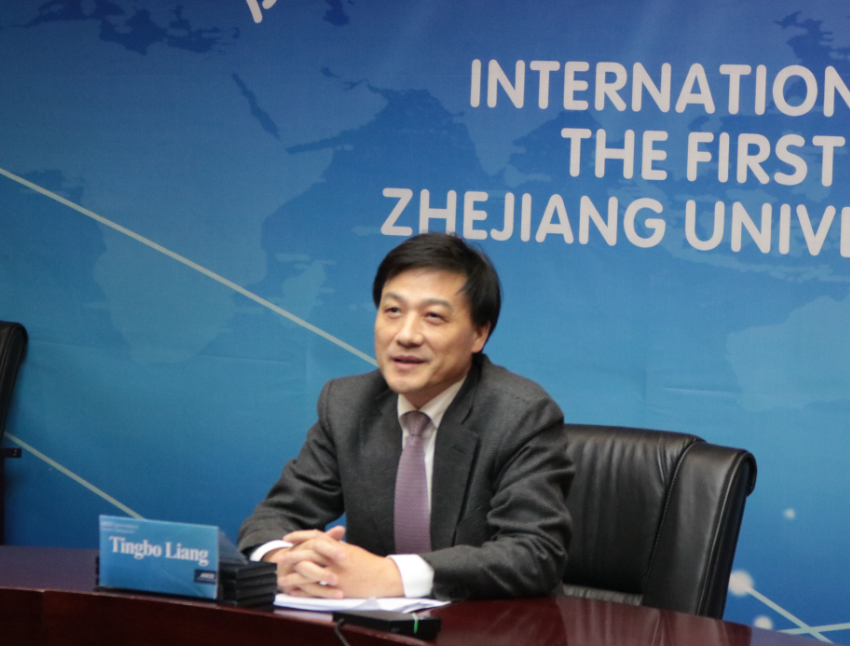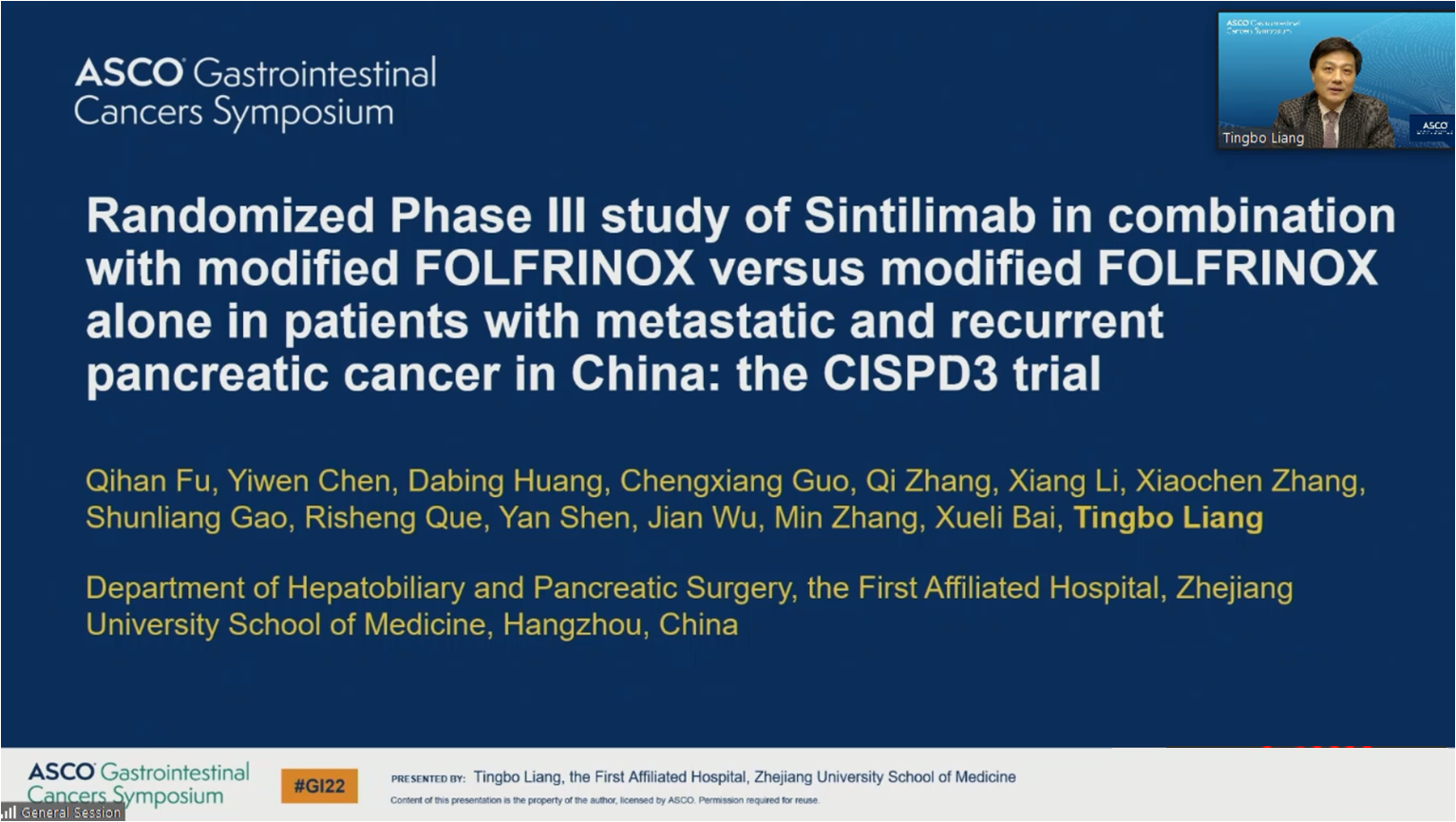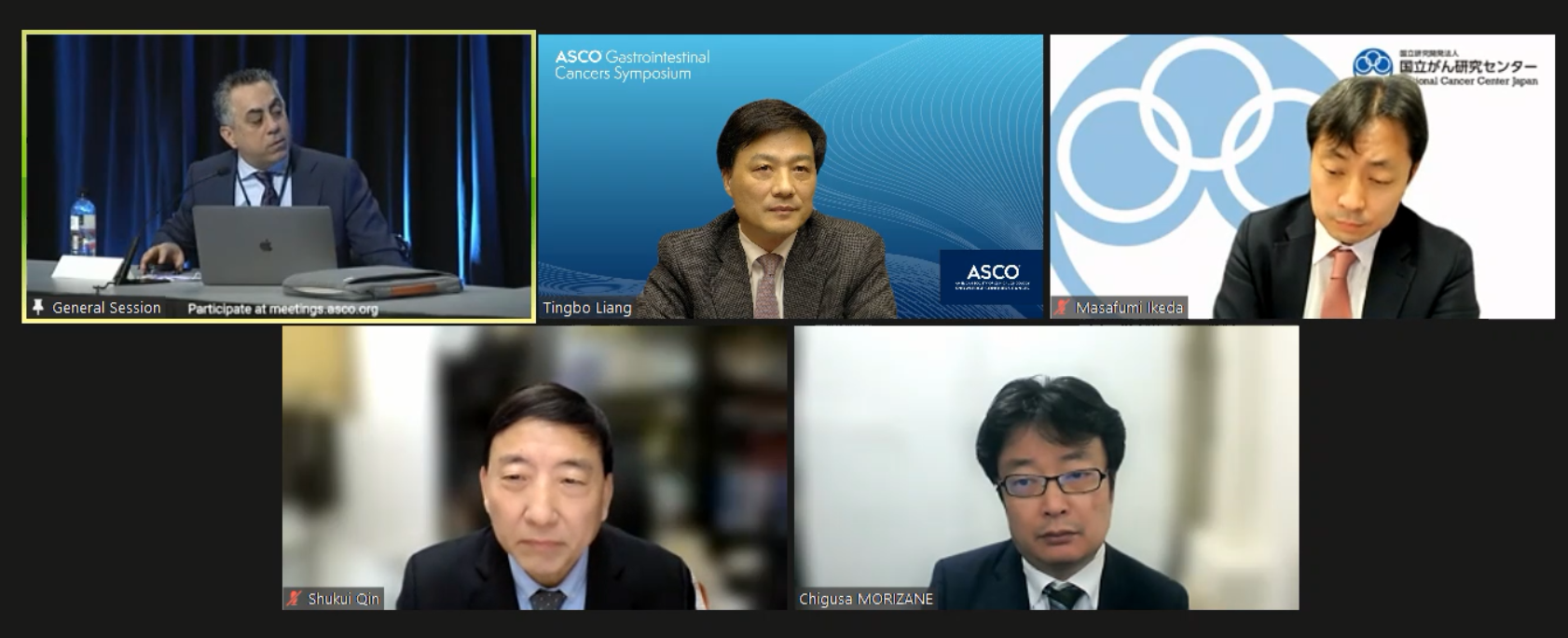
On January 21st, 2022, Professor Tingbo Liang, a well-known expert in organ transplantation, hepatobiliary and pancreatic surgery in China and Chairman of the First Affiliated Hospital, Zhejiang University School of Medicine (FAHZU), was invited to present at the American Society of Clinical Oncology (ASCO) Gastrointestinal (GI) Cancers Symposium, which is taking place virtually and in-person on January 20–22, 2022, in San Francisco, CA. As the only Chinese invited for an abstract on pancreatic cancer at ASCO, Prof. Liang introduced a significant progress achieved by FAHZU CISPD team in the diagnosis and treatment of pancreatic cancer.

Pancreatic cancer is a disease of high mortality, low early diagnosis rate, few treatment methods and poor curative effect, and its incidence has been rising in recent years. Folfirinox or modified-folfirinox is the standard of care for the first-line treatment of metastatic pancreatic adenocarcinoma. However, the prognosis still remains poor, and novel treatment options are urgently needed. Sintilimab, a human IgG4 monoclonal antibody bound to programmed cell death receptor-1(PD-1), has shown remarkable clinical efficacy in various cancers. Pancreatic cancer is resistant to PD-1/PD-L1 antibody used as monotherapy, and chemotherapy is likely to expand the efficacy of immunotherapy.
As one of the largest pancreatic cancer diagnosis and treatment centers in China, FAHZU Hepatobiliary and Pancreatic Surgery Department has accumulated rich experience in comprehensive therapies for pancreatic cancer by carrying out a series of clinical and translational research and yielded innovative results. FAHZU CISPD team has designed this CISPD3-trial, aiming to determine the efficacy and safety of the combination treatment of Sintilimab and modified-folfirinox for metastatic or recurrent pancreatic cancer.
From March 2019 to September 2021, a total of 110 patients were enrolled in the study and divided into two arms. In Sintilimab plus modified-folfirinox arm, the ORR was 50% and the DCR was 84% while in modified-folfirinox arm, the ORR was 23.9% and DCR was 71.7%. As is shown, the ORR was significantly higher in Sintilimab plus modified-folfirinox arm. The difference of DCR in these two arms was not significant. The most common AEs of Grade ≥ 3 were neutropenia, thrombocytopenia, anemia, vomiting, and increased aminotransferase level. The incidence of these Grade ≥ 3 AEs is similar in these two groups. 22.6% immune-related adverse events (irAEs) and 5.7% irAEs of Grade ≥ 3 were observed in Sintilimab plus mFFX arm. The addition of Sintilimab to modified-folfirinox improved ORR in advanced pancreatic cancer patients significantly. However, no superior OS and PFS were observed. Toxicity was manageable and acceptable.
In the panel discussion session, Prof. Liang probed into clinical research methods and shared experience of diagnosis and treatment of pancreatic cancer with experts from Mayo Clinic, Japan’s National Cancer Center Hospital, Japan’s National Cancer Center Hospital East and Cancer Center of Jinling Hospital.

FAHZU’s research results of pancreatic cancer at ASCO GI 2022 have shown its global influence in this field. FAHZU will continue to aim at the medical frontier to overcome difficulties, blaze new trails, and bring vitality into the high-quality development of the hospital and disciplines, providing state-of-the-art health care for patients all over the world.


